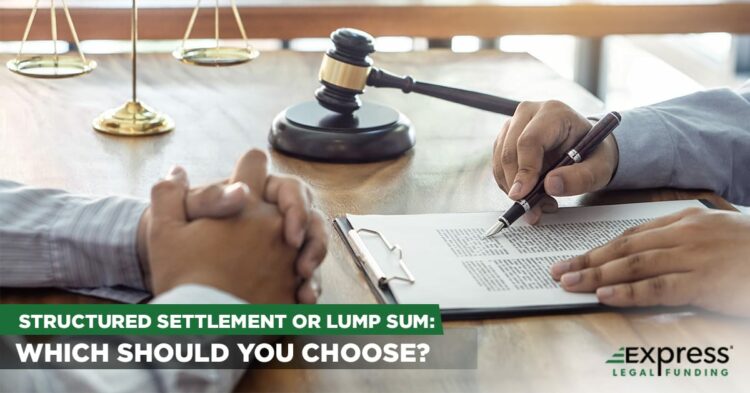SHOULD I SELL MY STRUCTURED SETTLEMENT?
Patrik Barfi 2024-07-31 09:14:12 10:30 1

Should I Sell My Structured Settlement? A Comprehensive Guide
Selling a structured settlement is a significant financial decision that requires careful consideration of various factors. A structured settlement is typically the result of a legal case, such as a personal injury lawsuit, and it provides a series of periodic payments over time. This setup can offer financial stability, but there may be circumstances where selling the settlement for a lump sum is appealing. Here’s a comprehensive guide to help you determine whether selling your structured settlement is the right choice for you.
Understanding Structured Settlements
A structured settlement is a financial arrangement where a plaintiff receives a series of payments over time, rather than a single lump sum, as part of a legal settlement. These payments are typically designed to cover ongoing expenses related to the case, such as medical costs, living expenses, or other financial needs.
Structured settlements offer several benefits:
- Predictable Income: Regular payments provide financial stability and predictability.
- Tax Advantages: Payments from structured settlements are usually tax-free.
- Protection: The structured nature of the settlement can ensure that funds are available over the long term.
Reasons for Selling Your Structured Settlement
While structured settlements offer stability, there are situations where selling your settlement might be a reasonable consideration:
Immediate Financial Needs: If you’re facing urgent financial challenges, such as paying off high-interest debt, making a significant purchase, or covering unexpected medical expenses, a lump sum payment could provide the necessary relief.
Investment Opportunities: If you come across a lucrative investment opportunity that could offer substantial returns, selling your structured settlement might enable you to invest that money and potentially grow your wealth.
Financial Hardship: In some cases, individuals may experience financial hardship due to job loss, unforeseen expenses, or other life events. Selling the settlement can provide a quick cash infusion to help manage these challenges.
Desire for Financial Freedom: Some people prefer having a lump sum of money to have more control over their finances, rather than being tied to a structured payment schedule.
The Process of Selling a Structured Settlement
If you decide to move forward with selling your structured settlement, here’s an overview of the typical process:
Evaluate Your Needs: Assess your financial situation and determine how much money you need. Consider whether the lump sum will address your needs effectively and whether you can handle the trade-off of losing future payments.
Consult Professionals: Before making a decision, consult with a financial advisor and a legal professional. They can help you understand the implications of selling your structured settlement and ensure you’re making an informed choice.
Shop Around for Buyers: Research companies that specialize in buying structured settlements. Obtain quotes from multiple buyers to compare offers and ensure you’re getting a fair price. Be cautious of companies that make high-pressure sales tactics or offer unusually high discounts.
Review the Terms: Carefully review the terms of the sale, including the amount you’ll receive, any fees involved, and the impact on your future payments. Ensure you understand all the details before proceeding.
Court Approval: In many cases, selling a structured settlement requires court approval. This step ensures that the sale is in your best interest and that you fully understand the consequences. Your legal advisor can guide you through this process.
Complete the Transaction: Once you’ve agreed on the terms and received court approval (if required), you’ll finalize the sale. The buyer will provide you with the lump sum payment, and the structured settlement payments will be transferred to the buyer.
Pros and Cons of Selling a Structured Settlement
Pros:
- Immediate Cash: Selling provides a lump sum of cash, which can be used to address urgent financial needs or opportunities.
- Debt Relief: If you’re struggling with high-interest debt, a lump sum payment can help you pay off creditors and improve your financial situation.
- Flexibility: Having a lump sum gives you greater control over your finances and allows for more flexibility in managing your money.
Cons:
- Loss of Future Payments: By selling, you forfeit future structured settlement payments, which could have provided a steady income stream.
- Reduced Value: Typically, you won’t receive the full value of your structured settlement. Buyers usually offer less than the total value to account for their profit margins and risk.
- Potential Tax Implications: Depending on your circumstances, there could be tax implications for the lump sum payment, which should be reviewed with a tax professional.
Factors to Consider
When deciding whether to sell your structured settlement, consider the following factors:
Current and Future Financial Needs: Assess whether the immediate cash from selling your settlement will adequately address your current and anticipated financial needs.
Long-Term Impact: Consider how losing future payments might affect your long-term financial stability. If you rely on these payments for ongoing expenses, selling may not be advisable.
Market Conditions: Evaluate the current market conditions for structured settlements. The value you receive may vary based on market trends and buyer demand.
Emotional and Psychological Impact: Consider the emotional impact of giving up future payments. Structured settlements can offer peace of mind and financial security, which you might lose if you sell.
Alternative Options: Explore other options before deciding to sell. For example, you might be able to obtain a loan against your structured settlement or explore other financial assistance programs.
Conclusion
Deciding whether to sell your structured settlement is a complex decision that should be made with careful consideration of your financial situation, goals, and needs. While selling can provide immediate cash and flexibility, it comes with the trade-off of losing future payments and potentially receiving less than the full value of your settlement.
Consult with financial advisors and legal professionals to thoroughly evaluate your options and ensure that selling aligns with your long-term financial goals. By taking these steps, you can make a well-informed decision that supports your financial well-being both now and in the future.